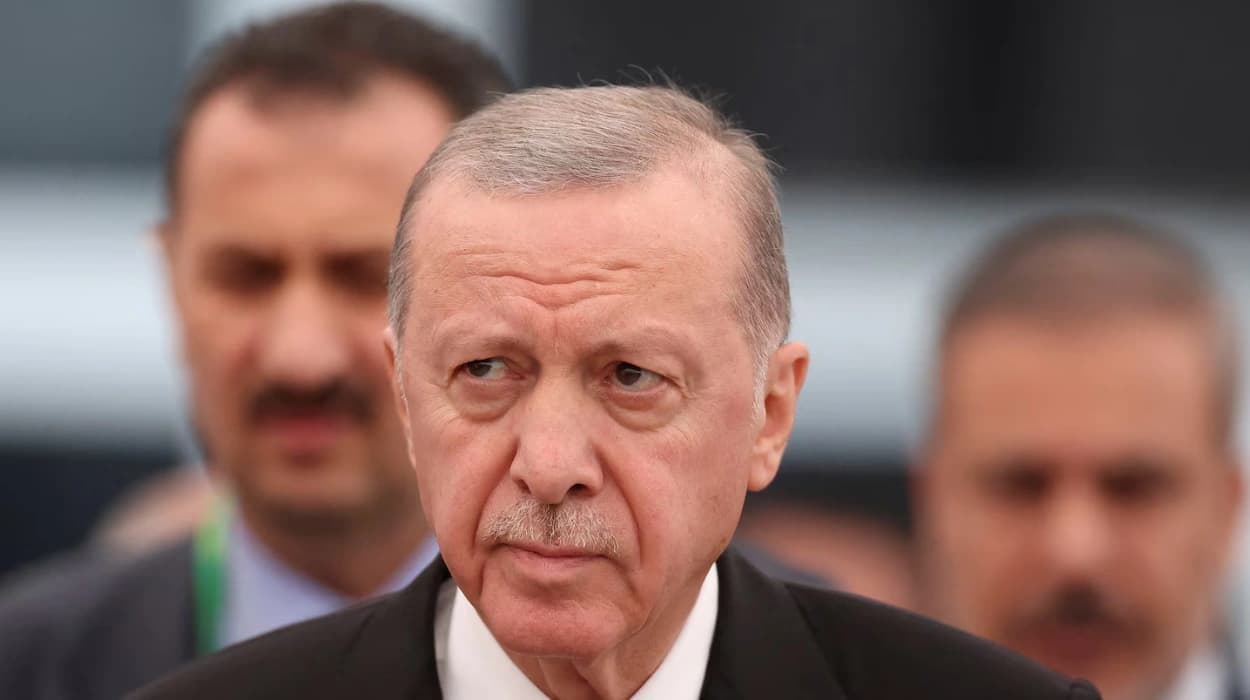Turkish President Recep Tayyip Erdogan has issued a strong
warning that Turkey may take military action against the Syrian Kurdish-led
Syrian Democratic Forces (SDF) if they fail to integrate fully into the Syrian
state as per the March 2025 agreement. Erdogan's stance comes amid heightened
tensions over the future of Kurdish-held territories in Syria and Turkey's
concerns over national security and Kurdish autonomy.
Erdogan’s Warning to Syrian Kurds
As reported by Sarah al-Suleiman of The Cradle, President Erdogan made it clear that Turkey will not tolerate the failure of the Kurdish forces to disarm and integrate into Damascus, which was part of a March 10 agreement with the Syrian government. He warned,
“If the sword leaves its sheath, there will be no place for the pen or for words,”
illustrating Turkey’s
readiness to escalate militarily if the SDF does not commit to the integration
process.
Omer Celik, spokesperson for Erdogan’s ruling Justice and Development Party (AKP), echoed this sentiment by describing the situation as a
“primary national security threat to Turkey”
connected to efforts within Syria
to destabilise the country. Celik indicated Ankara’s intent to prevent any
chaos that could arise from the continuation of Kurdish autonomous control, framing
it as a direct threat to Turkish security.
Background on the Kurdish Forces and the Agreement
The SDF, led primarily by the Kurdish People's Protection
Units (YPG), agreed in March 2025 with Syrian interim President Ahmad al-Sharaa
to fold its military and civil institutions into state apparatuses. These
include border posts, airports, and energy infrastructures, with the aim of
restoring Syrian sovereignty in the Kurdish-controlled northeast, often
referred to as Rojava by Kurdish factions.
Despite this, the integration talks remain stalled, partly due to mistrust within the Kurdish community and concerns over guarantees of Kurdish rights and security. Spokesperson Hevi Mustafa of the Syrian Democratic Council stated,
“We seek a peaceful solution but will not compromise on our rights and security,”
highlighting the Kurdish desire for meaningful
protections within Syria’s framework.
Turkish Security Concerns and Military Readiness
Turkey views the YPG and by extension the SDF as terrorist
affiliates of the Kurdistan Workers’ Party (PKK), an insurgent group with a
long-standing conflict against Ankara. As stated by Turkish Defence Ministry
spokesperson Zeki Akturk, the failure of the Kurdish forces to disarm and
integrate threatens not only Syrian unity but also Turkey’s national security.
He specified that Turkish troops would maintain their presence in northern
Syria until the border is secured and the “terror corridor” neutralised.
Turkish far-right Nationalist Movement Party (MHP) leader
Devlet Bahceli has amplified these concerns, asserting that the SDF “appears to
be within Israel’s orbit,” and labelling the group a threat that must be
eradicated. Bahceli has been a vocal proponent of strong action against Kurdish
forces, insisting that the SDF’s disarmament and disbandment should align with
the PKK’s moves under Abdullah Öcalan’s calls for peace and political
transition.
Syrian Government’s Position on Integration and Kurdish Autonomy
Syrian President Ahmad al-Sharaa stressed the importance of
implementing the March 10 agreement, indicating that the window for diplomatic
resolution is closing. He warned of the possibility that Turkish military
action could resume if Kurdish forces fail to complete integration by December
2025. Al-Sharaa emphasised equal citizenship rights for Kurds within Syria but
expressed scepticism toward Kurdish demands for decentralisation or autonomy,
dismissing such moves as veiled separatism.
According to al-Sharaa, Syria is largely decentralised under
existing laws, and further autonomy debates are premature. He appealed directly
to SDF commander Mazloum Abdi, pointing out that Kurdish rights will be
guaranteed within Syria’s unitary state framework, and that demands exceeding
this would not be entertained.
Geopolitical Implications and International Reactions
The March 10 agreement was supported by multiple
international actors, including the United States and Russia, aiming to
stabilise Syria and reduce foreign military engagement. The US continues to
distinguish between the SDF and the PKK, maintaining partnership with the SDF
in counterterrorism efforts against ISIS, which contrasts Turkey’s designation
of both as terrorist entities.
Turkey’s support for Syria’s newly formed government led by
al-Sharaa also reflects Ankara’s strategic focus on limiting Kurdish autonomy.
Analysts like Lina Haddad of Al-Monitor note that Turkey’s hardline stance
complicates the Kurdish quest for political integration without ceding military
control, exacerbating regional tensions.
Kurdish Response and Regional Concerns
Kurdish leaders maintain a cautious but firm position. While
committed to dialogue with Damascus, they also signal readiness to defend their
territories. SDF chief Mazloum Abdi warned that the ceasefire in northeastern
Syria is fragile and depends on the finalization of political deals, cautioning
that instability could resume if the integration process falters.
Pro-Kurdish politicians in Turkey express frustration over
Turkish military threats, warning that renewed conflict would be disastrous for
Kurds and regional stability. Pervin Buldan, a pro-Kurdish lawmaker, cited
Abdullah Öcalan’s calls for peace but urged Türkiye to support rather than
undermine Syrian Kurds, warning that any aggressive moves against Rojava would
be unacceptable.
Military Presence and Future Prospects
Presently, Turkish military forces conduct intermittent
operations and maintain a presence in northeastern Syria, asserting these
actions are within international law and serve legitimate national security
interests. Despite partial troop withdrawals, Ankara insists it will not leave
until border security is ensured and Kurdish armed groups disarmed.
Turkey’s strategic patience appears to be reaching its
limit, with a deadline in late 2025 for Kurdish compliance looming. The
continuation or failure of the integration agreement will likely determine
whether Turkey escalates military involvement or allows the political process
to proceed.
The situation in northern Syria remains precarious as
President Erdogan’s government positions itself ready to act decisively against
the Syrian Kurdish SDF if they fail to fulfil their commitments for integration
with Damascus. This stance reflects broader Turkish efforts to contain Kurdish
autonomy and secure national borders amid complex international dynamics.
Kurdish leaders express willingness to negotiate but insist on safeguards for
their rights, while the Syrian government seeks to restore sovereignty under a
unified state framework.
